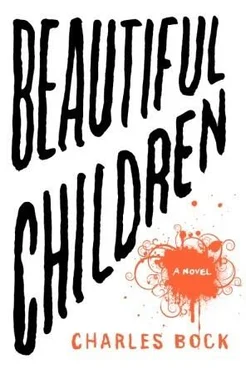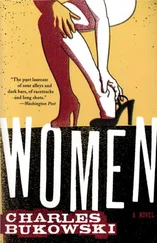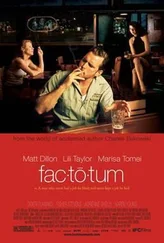No, he had not been the finest dandelion in the field. His diorama had not been in contention for the blue ribbon. And toward the end of his senior year, a certain genre of computer game had completely blown the petals off Bing's winsome little diorama. First-person shoot-’em-up was the genre's technical label; Deathmatch, the colloquial term. Originally, Deathmatch games seemed like little more than variations on the traditional hero-against-everyone battles; however, the genius of the genre, and the source of its addictive appeal, lay in its perspective. For as with the scene in a horror movie where the camera assumes the point of view of the killer, Deathmatch games provided the three-dimensional experience of being inside the battle, moving through some sort of darkened and foreboding domain. Advances in home computers made an encompassing, immersive perspective possible, the action blurringly disjointed all around you, bobbing and zagging as you inched around corners, performed leaping somersaults, searched for ammo and weaponry, and, most important, hunted. The goal was fresh meat. For disenfranchised males between the ages of twelve and twenty-eight, the games were a godsend. They gave you violence, constant and tangible, graphic and over-the-top, the splatters of blood never failing to impress and amuse, the physical recoil of victims always providing easy, guiltless thrills. Head shots were especially cool, but then again, everything about these games kicked ass.
Thus, Bing had dabbled. He'd lost track of more than a few afternoons, blasted his way through more than a few nights, even participated in his share of weekend-long marathons at a nearby hotel convention center, competing against teenagers and scruffy twentysomethings who, from their dilapidated station wagons, wheeled in hard drives the size of mini-fridges. Bing's involvement had extended through his senior year and into the first of his six years at a small southern California college whose liberal arts curriculum had also produced Richard Milhous Nixon. Which isn't to say the game was the entirety of his campus life, mind you. Bing also had a work-study job in the computer center. He had a full schedule of classes in art, art history, art appreciation, graphic arts, life drawing, portraiture, and still life. He had aspirations to nothing less than the creation of sensitive, artistic, emotionally honest pictures that, just maybe, would get him laid. There was also a small island of friends with whom Bing shared his dreamy hopes — five or six castaways like him, fellow travelers from high school who'd scattered to different colleges, as well as a few new buddies, like-minded thinkers that Bing had found on campus. Brought together as if responding to a siren audible only to them, they hung out; often in person, but just as often electronically, congregating in a chat room, chewing the fat during late-night bull sessions, forming and closing a small tight circle. The Knitting Room, they called themselves, since knitting was about as boring as anyone could come up with, and all the chat rooms with sexy and violent names were continually filled. Inside the Knitting Room, commentary went uninterrupted and undisturbed (sigh); the tone was unfailingly cynical. Each Knitter was a master in one-upmanship, secure in his superiority to the rest of the world, confidently voicing opinions on anything from rock and roll: ]1450SAT: Iz it possible tht Elvis Costello truly dzn't know what's so funny about peace love & understanding?to young celebrity hotties: ] DOMINATR69: I'd put it in her fartbox.Even ideas for reality game shows: ] KC_FTT_B: Ten big good looking d_des on an island. All testosterone machines, policemen, firemen, marines. They're homophobes, and there's no women on the island, only these ten d_des and a flock of sheep. Evry day the contestants get fed Viagra and Exctasy. Last one who doesn't bang a sheep wins a million dollars.
Then came instances when someone needed a way to avoid a term paper, and a late-night missive would go out. The Knitters would meet at the computer lab. Flavored chips were mandatory, as were Big Slams of Mountain Dew, and carry-packs of Red Bull. By breakfast time, everyone would be so twitchy and wired and fucked up that there was no way back to the cerebral, internal processes that schoolwork demanded.
You look back, you understand. But at the time, there's no way. Not while you're trapped, not from the middle of it.
The first warm morning of spring. Around campus, Bing was commonly referred to as the Dork King, Butterbixxe, and the Creepy Loser in the Cape. Running late for class, he had come down from his room unshaven, fumbling with his backpack and notebook. The dorm lounge was on the ground floor, you had to pass through it to get outside, and five, eight, people were standing around the television, which was mounted in the corner. One frizz-haired girl stared in shock, which was bizarre since her intellectual energies were usually devoted to the latest twists in celebrities’ private lives. Another moron — his long white T-shirt reading party coed naked lacrosse — kept saying how unbelievable it was.
A glance explained nothing. The screen was filled with the front of a sprawling, modernish building, a distant shot of wide cement steps leading up to a drab entrance, a series of double doors. SWAT troops were positioned along the perimeter, rifles trained. For long seconds nothing happened, then the scene shifted, to a half-open window on the top floor. The view shifted again to overhead, from a helicopter flying above; then to teenagers outside the school, standing behind barricades, crying and hugging one another. Then to stretchers loaded onto ambulances; frantic parents; more cops with guns.
A crawl along the bottom of the screen provided cursory details: two instigators were believed responsible, a pair of students from the high school, part of a group known for wearing trench coats and indulging in computer games. A network announcer relayed the contents of cell phone calls made from students inside the school, which provided some sense of what was happening.
Bing commandeered a love seat across from the screen. Seemingly born to opine about events like these, he refrained from providing a running commentary or so much as updating a newcomer on a new development. Rather, he settled in on the sagging couch and missed Comp Lit. In the day's ensuing hours, and then the week's subsequent days, through updates and reports and special investigations, Bing would gather more facts surrounding the true scope of what these young men had done, more information about the magnitude of their act. Bing would learn that this had not been a simple case where some postal employee had lost it. This had not been a prank phone call, or some copycat bringing Daddy's pistol to homeroom. Rather, the two high school students in question — each seventeen years of age — had procured the architectural blueprints for their school; they'd sawed down shotguns, used pliers to widen ends of CO2 cartridges. For fourteen months, they'd planned, they'd labored.
Like the lady who protests too much to a rich suitor on their first date, Bing railed against the subsequent media focus on Deathmatch games. Sure, he told anyone who'd listen, the killers had been experts at the games. But everyone who saw Old Yeller didn't go shoot their dogs, did they? How many fans of the Road Runner sprinted off a cliff and expected to float on the air? Bing made sure to note the gap that existed between making a joke about blowing up your high school and actually trying to blow up your high school; the significant difference between a socially feeble and mixed-up kid who nursed a grudge against his teenage years and a cold-blooded mass murderer. And while, yes, it was true that, on occasion, one of the perpetrator's journals elicited sympathy— I hate you people for leaving me out of so many things —and while, admittedly, the second perp's website included a number of heartrending posts— You don't know how many hours I spent on this. Would someone please play it? — in the hard cold light of what became known as twentieth-century America's worst school yard slaughter, empathy had to be with the victims and their families. Bing Beiderbixxe understood this as much as anyone.
Читать дальше











